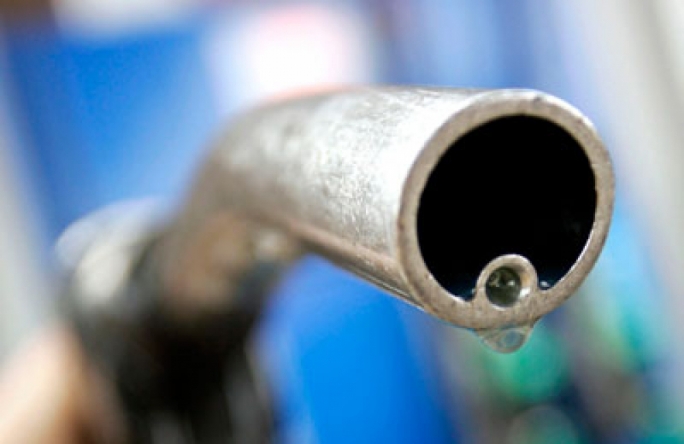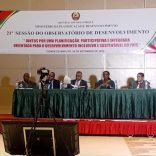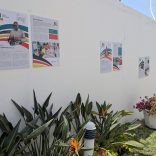Mozambique expects GDP growth of up to 2.5% this year
Fuel subsidies not effective – Maleiane, Mesquita & Klemens

The fuel subsidies provided by the Mozambican government are not an effective way of protecting the poorest and most vulnerable members of society, the Minister of Economy and Finance, Adriano Maleiane, told the country’s parliament, the Assembly of the Republic, on Wednesday.
Answering questions about subsidies from deputies, Maleiane pointed out that a generalised subsidy, whereby the price of fuel at filling stations is cheaper than the import price, benefited all motorists, regardless of income. That included motorists from neighbouring countries, who drove over the borders to fill up with cheap Mozambican petrol or diesel.
The fuel companies bought the fuel at one price, and were then obliged to sell it at a much cheaper price with the government promising to pay them the difference.
A second type of fuel subsidy was cheap diesel for the minibuses (known colloquially as “chapas”) which provide much of the country’s urban passenger transport. Since 2008, Maleiane pointed out, licensed chapas only pay 31 meticais (about 48 US cents) per litre of diesel. But the current price of diesel at the pumps is over 51 meticais a litre.
“So the state is paying 20 meticais per litre used by the minibuses”, said Maleiane. “This is not effective – it doesn’t reach the people the government wants to support”.
A third type of subsidy was for the diesel used in agriculture and by fishing boats, which benefit from a 50 per cent reduction in fuel tax.
“This is very difficult to control”, said Maleiane. “It’s hard to know whether the fuel is really used for agriculture or fishing”.
Redirecting subsidies: From fuel to privately operated vehicles
Transport Minister Carlos Mesquita said the government intends to redirect the subsidies away from fuel and towards the provision of new vehicles for private transport operators. Under a memorandum of understanding signed with the Mozambican Federation of Road Transport Operators (Fematro), businesses would acquire buses from the government at a subsidised price. The buses would come with five years of maintenance included in the deal.
300 buses are to be imported later this year, and Mesquita expected tenders for operating the buses to be launched soon. Routes within the Greater Maputo Metropolitan Area would be farmed out to private operators, who would be barred from such abuses as shortening the routes.
Negotiations are now under way to revise the bus and chapa tariffs, which are currently extremely low – seven meticais for short hops and nine meticais for longer distances.
Deputies from Renamo complained at the shortage of transport across the country, but Mesquita pointed out that one reason for this was the attacks by Renamo gunmen on buses, trucks and trains during the low level Renamo insurrection last year.
In its ambushes on the main north-south highway in the central province of Sofala, Renamo had destroyed 52 buses and trucks. Mesquita said ambushes against the railways cost an estimated 28.5 million dollars, and drove clients in neighbouring landlocked countries to abandon the Mozambican rail and port system, and use alternative ports instead.
The Minister of Mineral Resources and Energy, Leticia Klemens, confirmed that fuel prices will now be adjusted every month. This is in accordance with a decree of 2012, which had been allowed to fall into abeyance, prices will be increased, or reduced, whenever the costs of importing the fuel, expressed in meticais, move in either direction by more than three per cent.
The last rise in fuel prices was on 22 March. The cost of a litre of petrol rose from 50.02 meticais (about 78 US cents, at current exchange rates) to 56.06 meticais, an increase of just over 12 per cent. For diesel, the rise was 13.2 per cent: a litre now cost 51.89 rather than 45.83 meticais.
The government was increasing fuel prices, Klemens said, “to eliminate gradually the generalised subsidies which are unbearable for the government and the distributing companies”. Had the government not increased prices, she added, there was a real risk that the country would run out of fuel, since the companies would not have the money to cover the import bill.
The 2012 mechanism was not yet being fully implemented, she added – had it been implemented to the full in March, the price of a litre of petrol would have risen by 12 meticais rather than six.
If the recent fuel price rise had come as a surprise, Klemens added, “that was only because for almost a decade the government had granted subsidies, and under current circumstances it can no longer do so”.












Leave a Reply
Be the First to Comment!
You must be logged in to post a comment.
You must be logged in to post a comment.